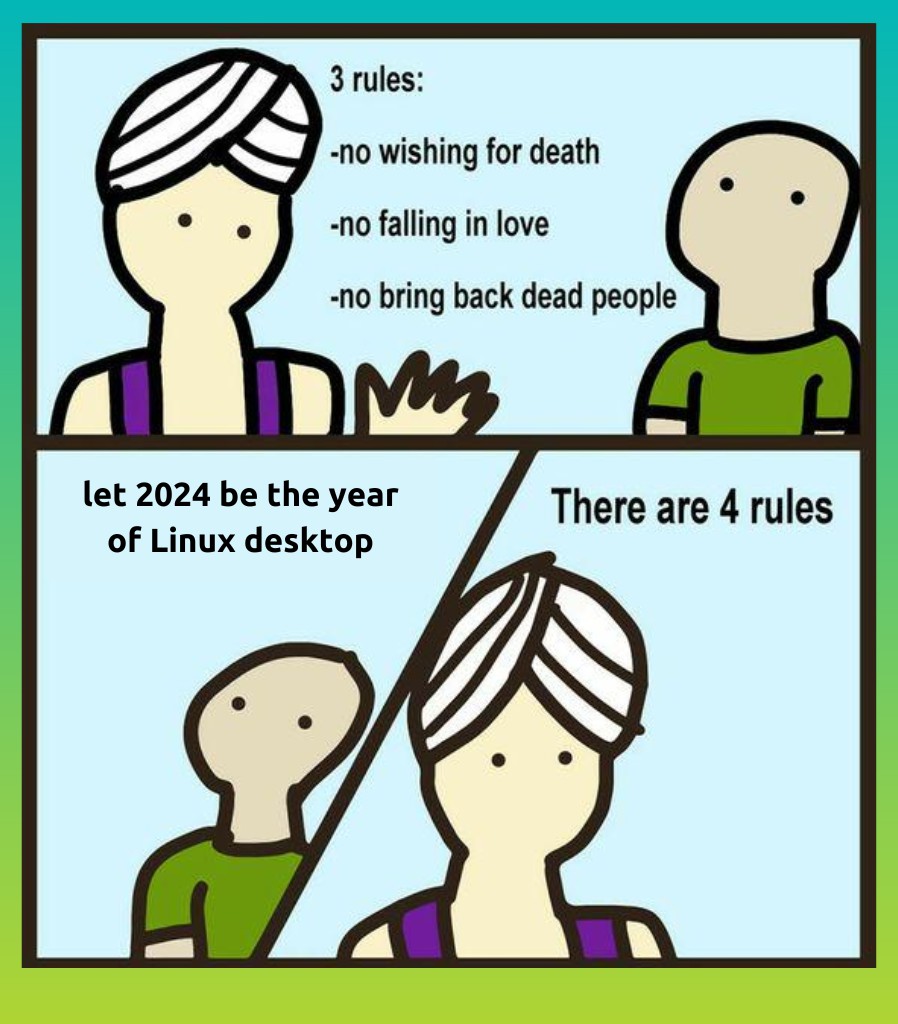Posts
202Following
26Followers
434Steven Rostedt
rostedthttps://lore.kernel.org/lkml/20240306015910.766510873@goodmis.org/
Steven Rostedt
rostedt@kernellogger But what if that “crazy” operation is actually documented in a man page?
mkdir /tmp/tracing
# cp -r /sys/kernel/tracing/events /tmp/tracing
# exit
$ trace-cmd sqlhist -t /tmp/tracing ...
https://trace-cmd.org/Documentation/trace-cmd/trace-cmd-sqlhist.1.html
Steven Rostedt
rostedtDoing some testing against a change; I ran two traces. Recording the trace before applying the patch as trace-b.dat and then calling the trace file after applying the patch as trace-a.dat. Then doing an ls trace*.dat I have:
trace-a.dat
trace-b.dat
And it looks like trace-a.dat should come before trace-b.dat. I’m so confused! 😛
Steven Rostedt
rostedtSteven Rostedt
rostedtI’m being “schooled” by Al Viro on how dcache, inodes, and files work internally.
This is a very interesting read that I recommend anyone that wants to understand VFS better should look at.
And don’t just stop at that email, the thread goes on. Very educational. Hopefully someone smarter than I can add this to the VFS documentation in the kernel 😉
Steven Rostedt
rostedtAllow ring buffer to have bigger sub buffers
Hmm, that subject line may not have been appropriate. 🤔
Steven Rostedt
rostedt@gregkh @vbabka @qyousef Well the problem is that it still requires manual effort to even include the clean up patch. The point I was making is that if a clean up patch causes a backport to fail, I still have to look at why instead of it just nicely being pulled in by the stable tag. The clean up in question, touched much more than the areas that failed, so it too may not backport properly.
Steven Rostedt
rostedt@qyousef @vbabka Exactly. If you do clean ups in the code that you are modifying then all is OK, because the modifications you are making will cause the backports to fail anyway, so the clean ups do not cause extra work. But if you just have random clean ups in code that hasn’t changed in years, if a bug in that code is found, then the backports are going to be a pain fixing all previous version before the “cleanup”.
Steven Rostedt
rostedt@qyousef false better than 0 is more for understanding that the value is a boolean an not to be taken as numeric. Sometimes that makes it easier to understand the logic. I’ve been trying to use boolean in those cases as well. This also is a requirement if you ever plan on using Rust 😉
Steven Rostedt
rostedtI don’t mind clean up patches, but this is the reason a lot of Linux kernel maintainers frown on them.
https://lore.kernel.org/all/2023120938-unclamped-fleshy-688e@gregkh/
This failure is because of a clean up patch that converted everything to “bool” where it could be:
https://lore.kernel.org/all/20230305155532.5549-3-ubizjak@gmail.com/T/#u
If I had not accepted that clean up, this backport would have been pulled in automatically with no extra work from myself. But because I added that clean up, I now have to fix this for every stable release before that clean up 🙁
Steven Rostedt
rostedtHa! ktest.pl already does this!
Thank you Masayoshi Mizuma! You only added this feature back in 2019 🤪
Steven Rostedt
rostedtExcept, it looks like it overwrote the default kernel, making my machine not able to boot the normal kernel. Had to play magic to get it back booting again.
Grub2 tries to make it so easy that it makes it suck for simply things.
Steven Rostedt
rostedt@oleksandr I have several test boxes that have various boot loaders. This one I haven’t touched in a while, and is the first time I noticed it. It seems to be the default for Fedora (which I’m a Debian guy). I need to get it to work for ktest.pl anyway, as others may need it.
